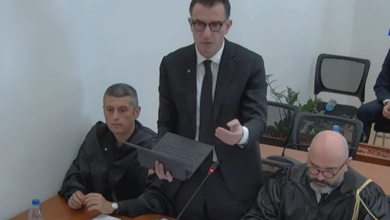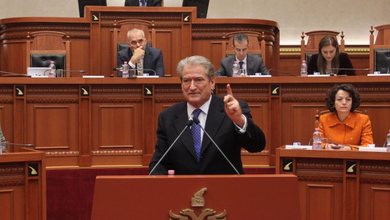
The Council of Ministers has announced that the Minister of State for Public Administration and Anti-Corruption, Adea Pirdeni, has published for public consultation the draft law on several amendments and additions to Law No. 152/2013, "On the Civil Servant", as amended.
As part of the proposals for amendment to the current law, it is proposed to improve the Civil Service model in Albania, by increasing the efficiency of the admission process and managerial procedures for the civil service, with the aim of creating conditions for attracting as many qualified professionals as possible from outside the Civil Service. It is proposed to provide for more transparency, flexibility and increased security in the recruitment and treatment of high-level civil servants.
According to the proposed changes, the limit for candidates who can be recruited from abroad will be increased from 20% to 50% of vacant positions within the public administration within one year.
There will be a reformatted salary structure that encourages performance and increases employee motivation.
According to the announcement of the Council of Ministers, the legal changes aim to create a professional and merit-based administration that is at the basis of Albania's efforts for EU membership, and its strengthening is intended to be achieved through these proposed legal changes.
The draft law has been drafted in close cooperation with experts from the "EU Good Governance" Program and OECD/SIGMA experts, in cooperation with ministries, independent institutions and will be subject to a broad public consultation process with all stakeholders from October 31, 2025.
The main interventions in the legislation address and resolve a number of aspects of strengthening the functioning of the civil service in practice as follows:
-Unique recruitment standard for the entire public administration:
Merit-based recruitment extends to all public institutions that are or are not part of the civil service.
The process is administered by a National Attestation Commission with representation from the government, independent institutions and local government.
-A new improved model for admission to the entry level is developed in two phases:
Uniformed national testing, developed by the DAP for all interested candidates;
Specific competition for the position, developed by the institution that has the vacancy, under the supervision of the DAP.
-Restructuring of the recruitment model for senior management officials
Increased transparency, flexibility and security in the recruitment and treatment of senior officials;
Announcement of positions individually for each vacancy;
Secretaries General and heads of institutions will have renewable 5-year mandates;
Discretionary interventions in selection are limited.
-A more open and flexible career system for more new and greater professional expertise
; Greater turnover of professionals between the public and private sectors;
Increase in the limit for candidates who can be recruited from abroad, from 20% to 50% of vacant positions within the public administration within one year;
Increased possibility of returning to the civil service after experiences outside it.
-A reformatted salary structure that encourages performance and increases motivation:
Automatic advancement in salary scales is removed;
An annual bonus for high performance is foreseen, for a limited percentage of employees;
A new performance evaluation system with 5 levels from the 4 levels currently foreseen.






















